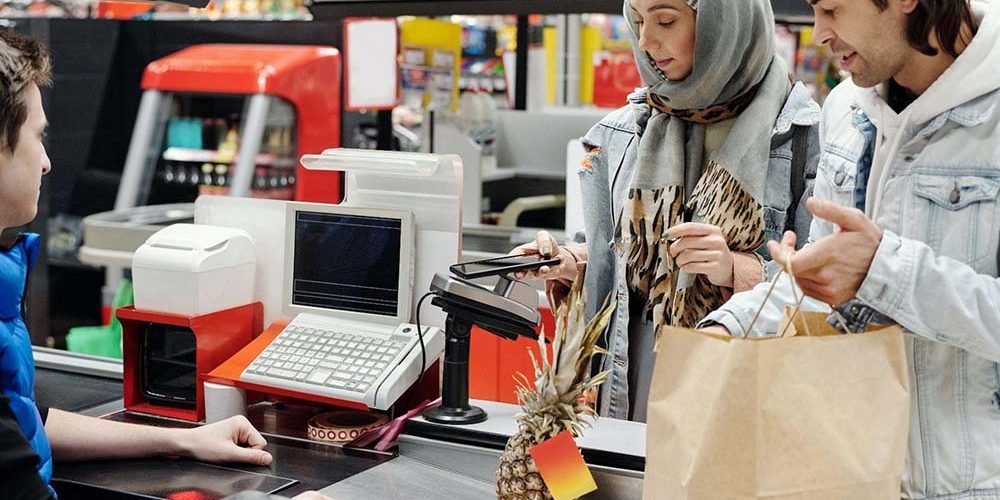In an era where sustainability is no longer optional, the retail sector finds itself at the forefront of this change. In 2022, it was reported that 88% of consumers prefer to buy from brands that support environmental sustainability. With the rise of conscious consumerism, retailers have an imperative role in instilling sustainable practices within their operations.
This piece will provide a roadmap to nine green solutions that any retail business should consider for an investment, ensuring the business remains profitable, ethical, and environmentally aware.
Table of Contents
Invest in Energy-Efficient Equipment
As the world places a heightened focus on sustainable practices, using energy-saving appliances is an effective strategy that retailers can adopt. Not only does this move drastically cut down energy consumption, but it also provides cost savings in the long run.
Energy Star-rated appliances use 10% to 50% less energy than standard appliances, substantially decreasing your store’s energy consumption. Compared to traditional light bulbs, LED lighting can reduce your energy use by up to 80%.
Additionally, modern energy-efficient equipment often performs better than its older, energy-hungry counterparts. Reduced energy bills mean more resources to invest back into the business.
Reusable Shopping Tote Bags
The humble shopping bag is at the heart of many retail experiences, but it’s also a significant source of environmental concern. Plastic bags can take hundreds of years to decompose, leaving a lasting footprint on our planet. On the other hand, reusable shopping tote bags are both eco-friendly and beneficial to the retailer.
Investing in custom reusable tote bags might be more appealing than you’d initially think, but you’re probably wondering how much custom reusable bags cost. When examined, the cost of reusable bags is found to be economically viable and potentially profitable.
These bags, crafted from durable materials, provide customers with a reliable carrying solution that can withstand the test of time. Moreover, they offer a unique canvas for a brand’s logo or message. It’s not just about giving customers a shopping bag—it’s about equipping them with a durable, reusable reminder of your brand, serving as a savvy marketing tool.
Optimized Logistics and Delivery
Logistics and delivery are crucial to any retail operation, directly impacting its carbon footprint. A well-planned approach can significantly affect the business’s environmental impact without compromising efficiency or customer satisfaction. Strategic steps towards optimized logistics include:
- Efficient route planning: This can minimize fuel consumption, reducing emissions and costs.
- Consolidation of shipments: By sending out fewer, fuller deliveries, we can decrease the overall trips needed, reducing carbon emissions.
- Eco-friendly delivery options: Offering customers greener delivery methods like bike couriers in urban areas or carbon-neutral delivery companies can also contribute to sustainability.
Emphasizing these aspects not only aids in achieving a smaller carbon footprint but can also increase operational efficiency and customer satisfaction.
Sustainable Procurement
Sustainable procurement means consciously choosing to work with suppliers that align with your sustainability values, and it’s a powerful tool that allows businesses to extend their environmental influence beyond their immediate operations.
Retailers should aim to source locally-produced goods whenever possible. Local procurement reduces carbon emissions associated with long-haul transportation, supports the local economy, and often ensures fresher and higher-quality products.
Equally important is seeking out products made from recycled or recyclable materials. This initiative aids in the conservation of resources and the reduction of waste destined for landfills.
Lastly, Fair Trade products can be another step in sustainable procurement. Fair Trade products ensure that producers in developing countries get a fair deal, promoting better working conditions and a fairer world trade system.
Reduce, Reuse, Recycle
Incorporating the principles of ‘Reduce, Reuse, Recycle’—the three Rs—is a practical and effective retail sustainability strategy. As a retailer, adhering to these principles can help you diminish your environmental footprint and save resources. Key actions include:
- Reducing waste: Retailers can scrutinize their operations to identify areas where waste generation can be minimized. This could involve using less packaging material or finding ways to use materials more efficiently. Finding packaging solutions that can do all the work of sourcing and distributing the packaging such as Zenpack company can be a big help for you.
- Encouraging reuse: In-store policies that incentivize customers to bring their shopping bags or containers can drastically reduce the need for disposable options.
- Establishing recycling programs: Retailers can set up in-store recycling stations for customers to return used items like batteries, light bulbs, or even packaging materials from purchased products.
Adopting the three Rs isn’t just about environmental responsibility—it can also drive customer loyalty and lead to cost savings.
Renewable Energy Sources
Solar and wind energy, for instance, offer clean and sustainable alternatives to traditional energy sources, greatly contributing to reducing a retailer’s carbon footprint.
While the upfront cost of installing solar panels or wind turbines might seem significant, it’s important to see this as a long-term investment. Over time, the cost savings from reduced energy bills can offset the initial expense. In many regions, excess energy generated can be sold back to the grid, providing an additional revenue stream.
Moreover, customers today are increasingly aware and supportive of businesses prioritizing sustainability.
Digitalization of Processes
Businesses can significantly reduce paper consumption, conserve natural resources, and cut waste by converting traditional paper-based processes to digital platforms. Consider implementing these practices:
- Digital receipts: Transitioning from paper to digital receipts saves paper and provides a convenient option for customers who prefer electronic records.
- E-commerce platforms: An online presence helps reduce the physical footprint of a retail business and minimizes the environmental impact associated with brick-and-mortar stores.
- Technological solutions for inventory management: Advanced systems can help manage stock more efficiently, leading to less waste from unsold or expired products.
While the initial switch may require resources and adaptation, the long-term benefits of digitalization include enhanced sustainability, improved operational efficiency, and, often, an enriched customer experience.
Staff Training on Sustainability
The training could include information on waste management, energy conservation, and the benefits of sustainable sourcing. When staff members fully grasp the importance of these efforts, they’re more likely to apply them consistently and passionately.
Moreover, the well-informed staff becomes ambassadors of your brand’s sustainability values to customers. They can elucidate your green initiatives, respond to queries, and influence consumer behavior towards more sustainable choices.
Green Building and Design
A significant aspect to consider for green building and design is the selection of materials. Opting for sustainable or recycled materials can greatly reduce the environmental footprint of the construction process.
Energy-efficient heating and cooling systems, too, can contribute considerably to reducing a store’s energy consumption. While the initial investment in these systems may be higher, the long-term energy savings often offset the upfront costs.
Furthermore, architectural design that maximizes the use of natural light can lessen the need for artificial lighting during daylight hours.
Conclusion
Sustainability in retail is no longer optional; it’s a necessity. By embracing green strategies like reusable shopping bags, energy-efficient equipment, optimized logistics, and more, retailers can contribute positively to our environment.
The steps may seem incremental, but they make a monumental difference when adopted broadly. Not only do these initiatives cut costs and enhance brand image, but they also pave the way toward a greener future. Every small action counts in our collective stride toward sustainability.





